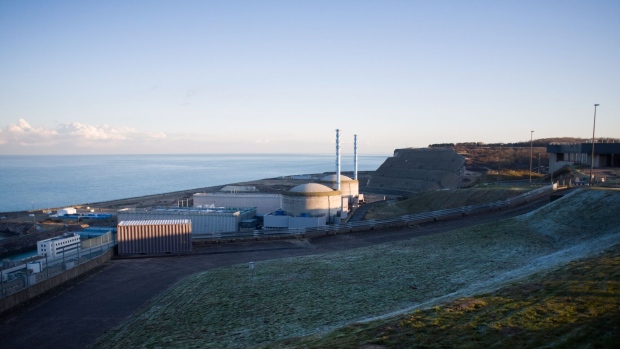Mar 8, 2023
EDF Told to Review Reactor-Check Program After Penly Crack Found
, Bloomberg News

(Bloomberg) -- Electricite de France SA must review its program of reactor checks after finding yet another crack earlier this year, the country’s nuclear safety authority said.
It’s not clear how the review will affect nuclear output, which EDF expects to recover this year after plunging in 2022 amid multiple halts for repairs. The shutdowns, caused by stress corrosion cracks on cooling-system pipes, added pressure to Europe’s strained energy system as Russian gas supplies dwindled.
EDF said last month it found a crack on a pipe at its Penly-1 reactor, which was already offline for maintenance and repairs. The defect is located near a weld that had been mended twice during construction of the plant, which was commissioned in the early 1990s.
The latest crack, as much as 23 millimeters (almost 1 inch) deep, means the resilience of the pipe can’t be assured, the Autorite de Surete Nucleaire said in a statement Tuesday. Given that EDF hadn’t previously expected that section to be prone to stress corrosion, it must now revise its strategy, the ASN said.
“The discovery of this materially worse-than-expected defect is likely to lead to more rigorous quality control and potentially longer outages,” JPMorgan Chase & Co. analyst Vincent Ayral wrote in a note. “If this were to be the case, we would expect the French power-price outlook to increase,” with some “spillover effect” into neighboring markets.
Read more: European Energy Prices Jump as French Nuclear Concerns Return
Following the discovery of corrosion cracking at a reactor in 2021, EDF opened a wide-ranging investigation. The probe found that the company’s 16 newest units — including its two Penly reactors — were more prone to the phenomenon mostly because of the sinuous design of their emergency cooling pipes. Yet cracks may also be caused by welding and other defects.
The fissure at Penly-1 “was probably generated by a targeted double-repair operation during the initial pipe layout,” EDF said Feb. 24. “This will lead to repairs to the affected area.”
EDF is currently checking welds on other emergency cooling lines that have been mended in the past, according to the ASN.
The utility’s nuclear output sank last year to the lowest since 1988 as it halted about a dozen of its 56 reactors to replace cracked pipes. Repairs continue at several units and more pipe replacements are planned later this year at a handful of plants, while the rest of the fleet is due to be progressively checked up until 2025.
Read more: Cracking Under Pressure - The Race to Fix France’s Nuclear Plants
(Updates with analyst comment in fifth paragraph.)
©2023 Bloomberg L.P.





